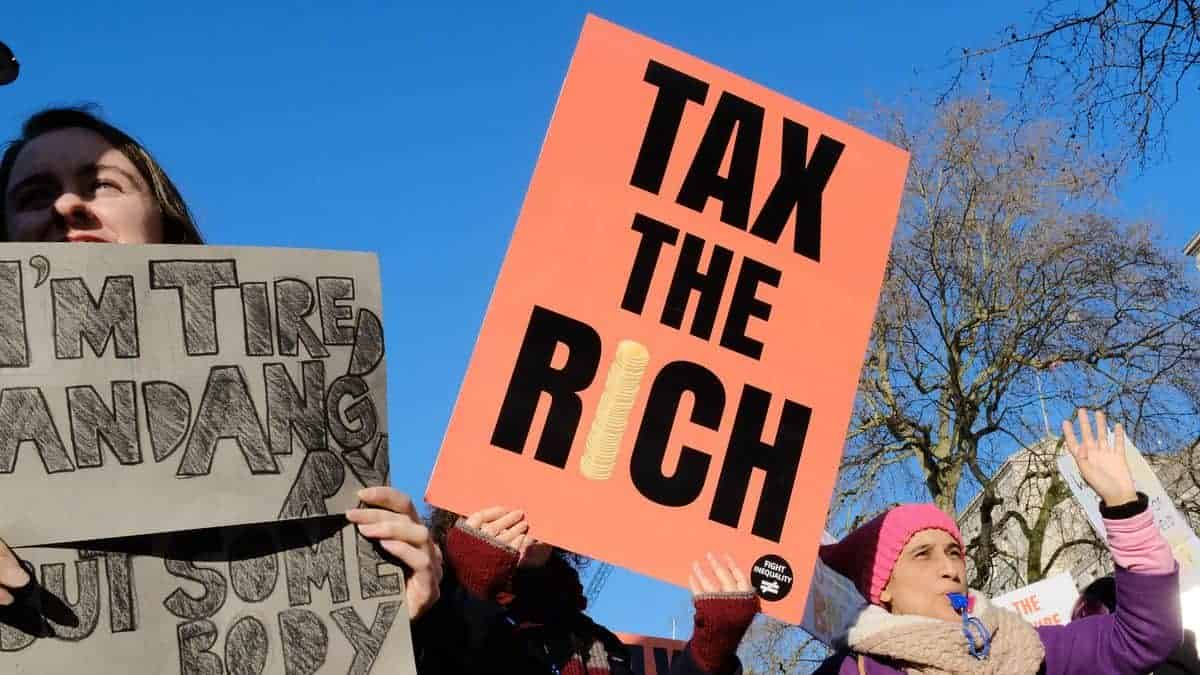Should we tax the rich more to end global hunger?

Many seasoned wealth analysts believed that a worldwide wealth tax was a fine idea but would never materialize back in 2013. Donald J. Trump’s victory in the election seemed to corroborate this political analysis.
Didier Jacobs, an economist for Oxfam, offers a very different viewpoint in his most recent discussion paper, The Case for Billionaire Tax. According to Jacobs, a tax on concentrated wealth at the global level may help finance economic growth, ensure that everyone has access to basic health and education services, and be a morally sound and politically workable change agent.

Jacobs proposes a 1.5 percent tax on net worth over $1 billion, which in principle might bring in $70 billion annually from the world’s 1,800 or so billionaires. Simply put, a worldwide billionaire tax might eventually put an end to “dollar a day” extreme poverty in all nations. That may also put an end to world hunger.
That statistic alone ought to prompt serious policymakers and activists to think about enacting a worldwide billionaire tax. In essence, by not imposing a minor fee on a tiny group of people who have more money than they could possibly spend in a dozen lifetimes, we are choosing to condemn millions of families to abject poverty now.
Easier said than Done
Will inequality be resolved by a 0.5 percent global tax on the wealthy? According to the report, if the world’s wealthiest 1% only paid an additional 0.5% in taxes, there would be enough money to educate all 262 million children who, according to U.N. estimates, are not in school, as well as to provide enough health care to save the lives of 3.3 million people who are most likely to die from inadequate treatment for medical conditions. According to Oxfam, closing the wealth divide would help end poverty.
Reality of Taxing the Rich
Taxing corporations and the wealthy is not universally seen as the best course of action. The sources explain why we are unable to be certain. that simply addressing inequality would end poverty, and that several factors must come into play for poverty to be eradicated, including a functioning government that spends tax income wisely and organizations that provide services like healthcare, education, water, and energy.
On the other hand, as per the sources, we also came to know that the new business models can address social issues while also generating local and international employment. One such example is a chain of privately managed, all-inclusive diabetes clinics in Mexico that offer considerably more affordable care than the public system. He claims that by creating jobs and other social advantages, these corporate innovations have the power to help entire nations escape poverty.
Furthermore, Currently, 10 of the Europe Union’s 28 countries are in the process of enacting a financial transaction tax. The money will consolidate into fewer and fewer hands the longer we wait to address global wealth disparity. The implementation of a global wealth tax will not be simple or quick, but it will be required if we are to stop the terrible wealth inequality that exists today.


